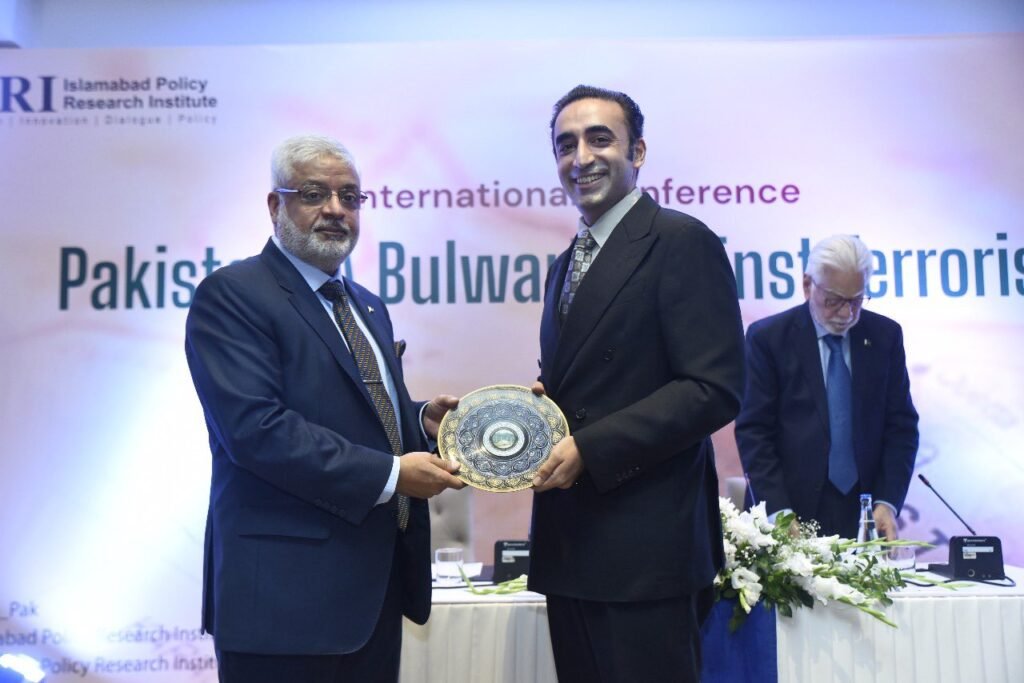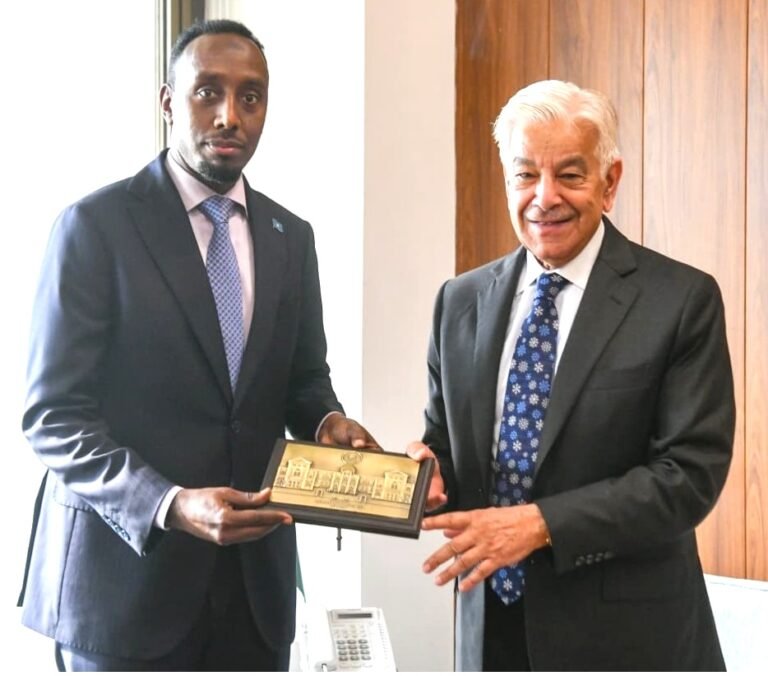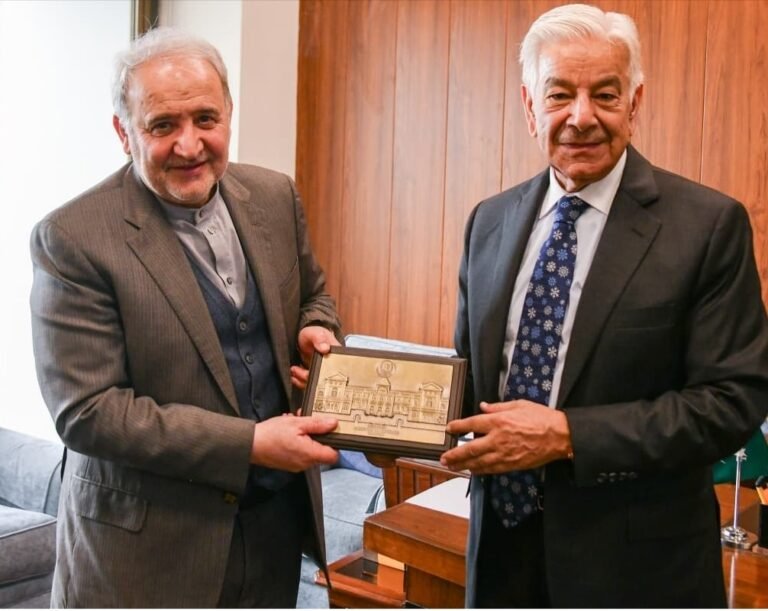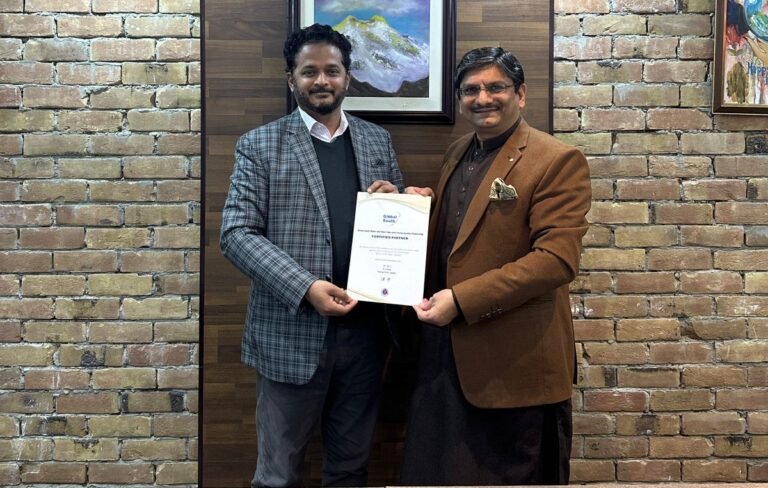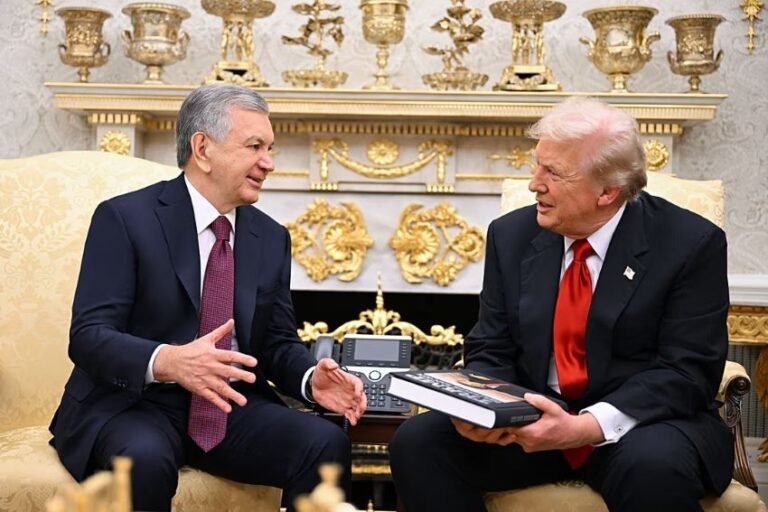On July 2nd, 2025, the Islamabad Policy Research Institute (IPRI) convened an international conference titled “Pakistan: A Bulwark against Terrorism.”
The event was chaired by Lt. General Majid Ehsan HI(M) (Retd), President of IPRI, and featured keynote and panel sessions with senior Pakistani and foreign experts. Dignitaries included Bilawal Bhutto Zardari, PPP Chairman and former Foreign Minister, high-ranking security officials, and foreign envoys such as Matt Cannell, UK Deputy High Commissioner.
The conference highlighted Pakistan’s counterterrorism achievements, regional security challenges, and the need for international collaboration.
Welcome Remarks by Lt. General Majid Ehsan HI(M) (Retd), President IPRI
Lt. General Majid Ehsan (Retd), opened the conference by underscoring Pakistan’s pivotal role in the global fight against terror. He “outlined the need and necessity of flagging Pakistan’s meticulous role in fighting terrorism” and emphasized integrated policymaking for a lasting solution. He noted that decades of militancy have shaped Pakistan’s security strategy, and insisted on a comprehensive success by aligning military efforts with civilian policy. Lt General Majid Ehsan (Retd) called attention to Pakistan’s sacrifices and resilience, framing the nation as a frontline state that has thwarted adversaries at home and abroad.
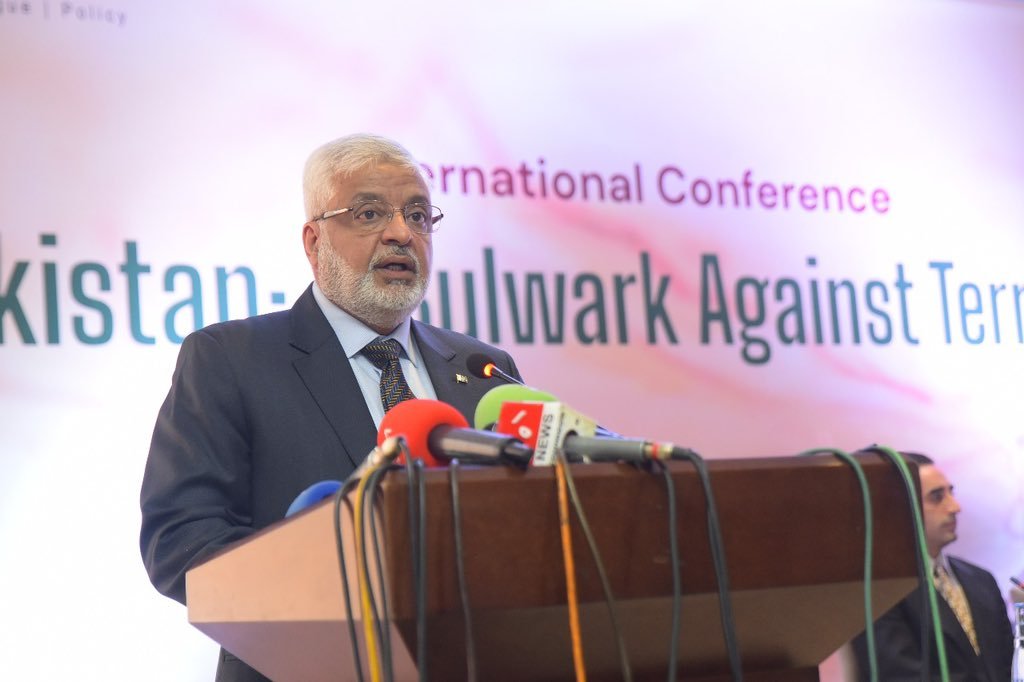
Keynote Address by Bilawal Bhutto Zardari, Chairman Pakistan People Party
Bilawal Bhutto Zardari delivered the inaugural address, blending themes of sacrifice, resilience, and regional cooperation. He reaffirmed that “Pakistan has come a long way, and has defeated terrorism at home”, while remaining a vital partner in the global war on terror. Citing statistics, he noted over 90,000 Pakistani military and civilian casualties since 2001 and economic damages exceeding $100 billion, insisting “it’s time for the world to recognize Pakistan’s sacrifices”.
In the same vein, Bilawal celebrated the Pakistani armed forces success “Armed forces backed by iron-willed citizens have broken the backs of Al Qaeda networks, dismantled Daesh, and driven the TTP from the fortress to the fox hills”. He credited operations like Zarb-e-Azb and Radd-ul-Fasaad for dismantling extremist cells and neutralizing terror havens. Bilawal asserted that Pakistan’s counterterrorism campaign described as “the most expensive in modern history” has worked “because the alternate is surrender,” a word he said “is not in Pakistan’s dictionary”.
However, A major element of Bilawal’s speech was a call for improved ties with India. He invited New Delhi to forge a historic, phenomenal partnership to jointly combat terrorism. Repeating that India and Pakistan share “a moral and civilizational obligation” to protect over a billion lives from extremism, he urged India’s leadership to step down from the high horse heading in the abyss and pursue peace with Pakistan.
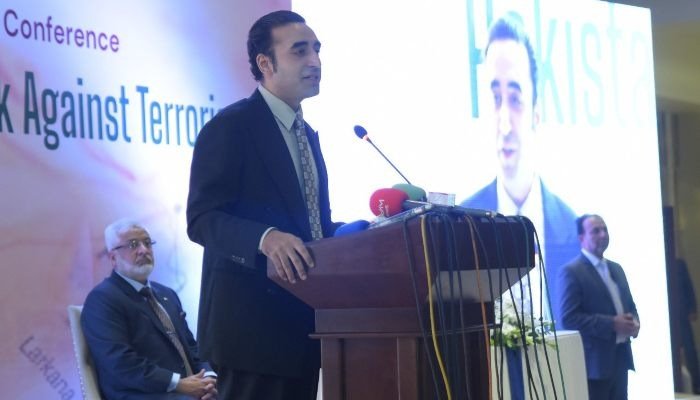
He insisted on resolving the Kashmir dispute per the Kashmiris’ own aspirations, and demanded an end to the “weaponization of water,” referencing recent tensions over the Indus Waters Treaty. “Let us resolve Kashmir in accordance with the aspirations of the people. Let us end the weaponization of water. And instead, build peace as mighty as the Himalayas,” he said. Bilawal appealed to shared cultural heritage (“the ancient soil of the Indus Valley civilization”) to replace hatred with partnership, stressing, it is not a weakness to extend a hand, it is wisdom.
Moreover, Bilawal Bhutto Zardari also addressed emerging dimensions of extremism. He warned of digital propaganda and cyber-enabled terrorism, pledging that “no stone will be left unturned in prosecuting those who use religion as a means to further terrorism”. Bilawal appealed to the international community to learn from Pakistan’s experience. He emphasized inclusive security, declaring terrorists have “no nationality, religion, caste, or creed” and urging “collective global efforts” to eliminate the menace.
On Afghanistan, Bilawal Bhutto Zardari, former foreign minister said Pakistan’s support for the Taliban regime in Afghanistan was met with a surge in cross-border terrorist attacks. “The Taliban promised stability but brought a 40% rise in militant attacks on Pakistani soil and provided safe havens to groups like the TTP, BLA, and ETIM. Sovereignty carries responsibility: stop the flow of fighters, curb arms trafficking, and honor the Doha Accord, or be judged by your alliances,” he stressed.
He urged the international community to learn from Pakistan’s counterterrorism efforts, calling for equitable burden-sharing, investment in technology, and development as key to counterinsurgency.
“No counterinsurgency succeeds without winning hearts and minds,” he noted, adding that “there is no constitutional right to weaponize religion.”
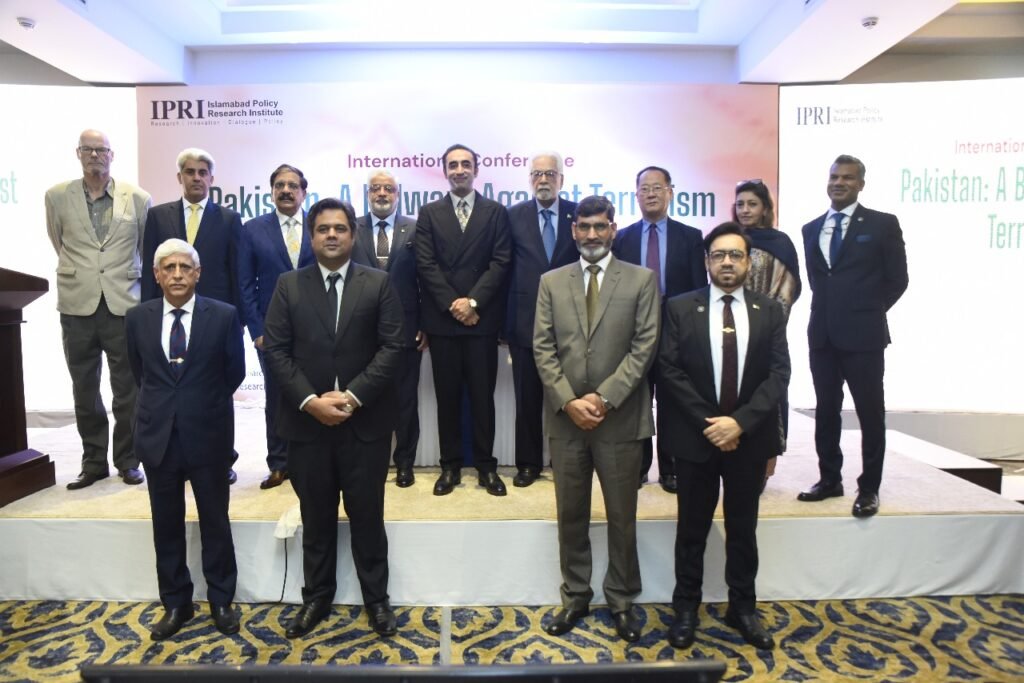
Analysis on Bilawal Bhutto Zardari’s Address
In his recent address, Bilawal Bhutto Zardari blended emotive narrative with concrete policy proposals. He underscored Pakistan’s heavy war-on-terror sacrifices to argue that Pakistan’s counterterrorism role deserves global recognition. By casting terrorism as a civilizational crisis, he broadened the issue beyond national borders, emphasizing that the fight is not Pakistan’s alone but a universal duty. This framing stressed shared values and collective responsibility, avoiding narrow blame.
His outreach to India was a standout element. The PPP leader proposed a historic partnership to jointly combat extremism. He urged Pakistan and India to resolve core disputes from Kashmir to water rights through dialogue instead of confrontation. The language was firm yet conciliatory, reflecting PPP’s tradition of peace-building and signaling a willingness to de-escalate South Asia’s deadliest rivalry. Crucially, he emphasized conflict resolution over tit-for-tat politics, implicitly calling for divisive rhetoric to give way to pragmatic engagement.
On the home front, Bilawal Bhutto Zardari stressed national unity and resilience. He praised Pakistan’s armed forces and citizens for decimating militant networks over two decades, even as last year saw one of the highest death tolls in a decade. Yet he argued that surrender is not an option. At the same time, he introduced liberal themes: empathy for victims, dialogue over divisions, and even data-sharing. He invited global partners to study Pakistan’s counterterrorism datasets, positioning the country’s experience as a resource for international research and collaboration.
In sum, he combined patriotic resolve with outward-looking diplomacy. His speech, framed as a broad foreign policy vision, unequivocally condemned extremism, called for regional engagement, and offered Pakistan’s hard-won lessons to allies. While some domestic critics may question his overtures to India, his stance aligns with the PPP’s long-term goal of peaceful coexistence in South Asia.
Panel Discussions: Sessions I & II
Following the addresses, two panel sessions convened featuring Pakistani security experts and foreign delegates:
In Session I, moderated by Brig. Dr. Raashid Wali Janjua (Retd), Director Research & Analysis (IPRI), focused on Pakistan’s domestic counterterrorism strategies. Speakers included Lt Gen Nasir Khan Janjua (Retd), former National Security Advisor; Dr. Khalid Chauhan, PEV NACTA; Dr. Aneel Salman, Chair of Economy at IPRI and OGDCL; and Dr. Syed Kaleem Imam, former IGP Sindh and Islamabad.
The panel reviewed the evolution of militancy in Pakistan, from the Afghan Jihad era to the post-9/11 surge, assessing key countermeasures. Discussions covered the implementation of the National Action Plan, efforts to disrupt terror financing and illicit networks, and lessons from successive operations.
Panelists noted that Pakistan suffered over 90,000 civilian and military casualties between 2001 and 2024, while its armed forces eliminated approximately 36,000 terrorists—underscoring both the heavy toll and the scale of counter-efforts. They highlighted operations such as Al-Mizan, Rah-e-Rast, Zarb-e-Azb, Radd-ul-Fasaad, and Azm-e-Istehkam, which collectively drained militant strongholds in the north and dismantled urban sleeper cells.
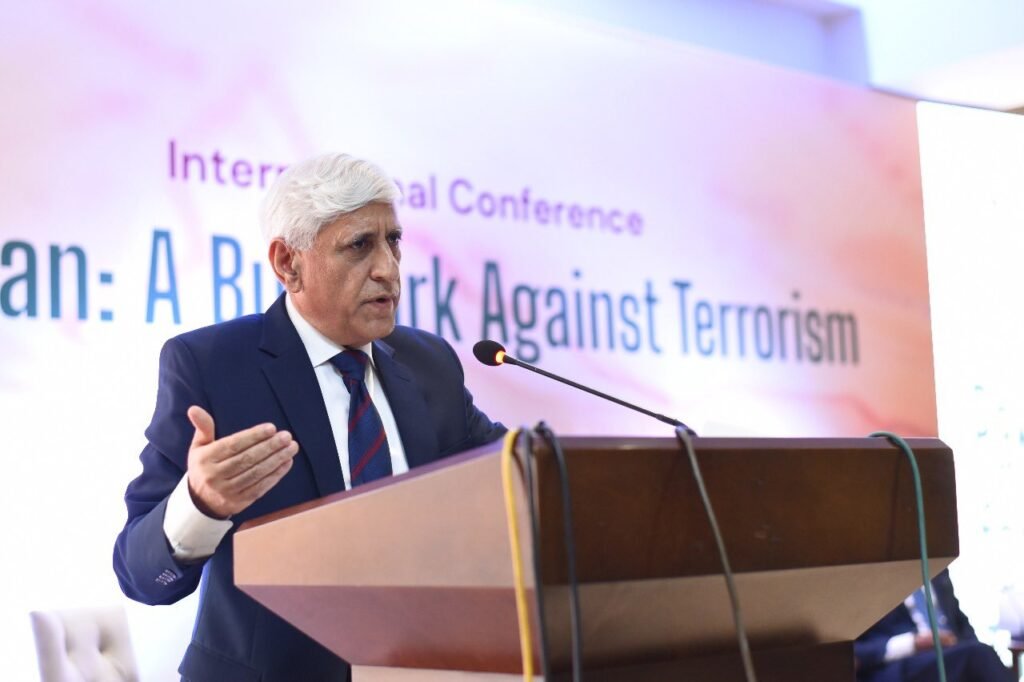
In Session II, moderated by Dr. Huma Baqai, Rector of the Millennium Institute of Technology, the panelists included Ambassador Nabeel Munir, Special Secretary to the United Nations (MOFA), who opened the session with remarks on “A Unified Front Against Terror in South and Central Asia,” followed by Matt J. Cannell, UK Deputy High Commissioner, who spoke on “Mitigating Transnational Terrorism: A Pakistan–UK Approach.”
Furthermore, Sr. Col. (Retd) Cheng Xizhong, Executive Adviser at the Charhar Institute, China, highlighted Pakistan-China cooperation against terrorism, while Dr. Steve Breyman, Professor Emeritus at Rensselaer University, USA, discussed Pakistan-USA counterterrorism cooperation in the War on Terror. The panel explored international collaboration and shared intelligence frameworks.
For instance, Cheng and Breyman emphasized countering extremist ideologies and working with global partners, while Cannell stressed the need for bilateral initiatives to address emerging threats.
A subsequent Q&A session featured lively dialogue with attendees on issues such as border security, regional dynamics, and the role of non-state actors.
The overall discourse in both sessions reflected Pakistan’s experience since the 1970s and its continuing fight against extremism. Attendees noted that panelists reaffirmed Pakistan’s counterterrorism successes, addressed evolving challenges such as Baloch separatist violence and digital propaganda, and advocated for comprehensive, multi-pronged approaches.
UK Deputy High Commissioner Matt Cannell, in his remarks, highlighted areas of UK-Pakistan cooperation, emphasizing intelligence sharing, training exchanges, and counter-radicalization initiatives. His statement reinforced the conference’s central message: terrorism is a global threat requiring joint efforts, with Pakistan serving as a crucial partner.
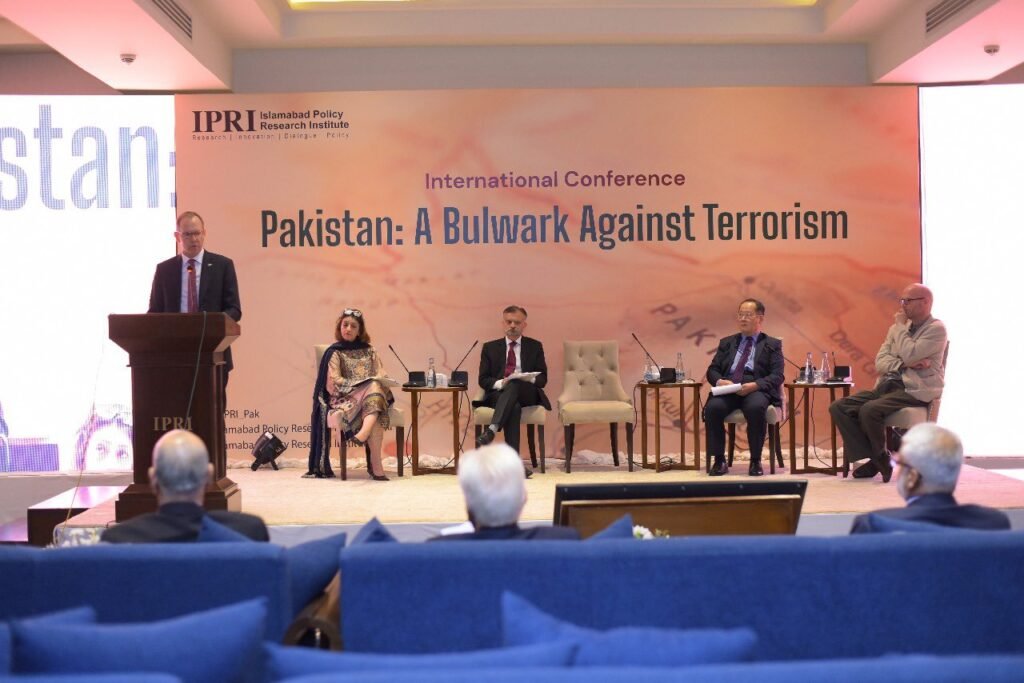
Summary of Key Points
- Counterterrorism Achievements and Challenges: Pakistan has endured over 90,000 military and civilian casualties and economic losses exceeding $100 billion since 2001. Operations Zarb-e-Azb and Radd-ul-Fasaad dismantled major terrorist sanctuaries. Despite these successes, 2024 saw a 66% surge in violence with record fatalities, underscoring persistent threats, especially from a resurgent TTP.
- Regional Cooperation and Strategic Partnerships: Pakistan emphasized the transnational nature of terrorism and extended offers of joint counterterrorism action to India. The UK and China highlighted their shared interests in regional stability and collaborated with Pakistan to counter threats to South Asia and projects like CPEC.
- Evolving Threats and Digital Warfare: The conference highlighted the rise of social media radicalization and terrorist financing. Pakistan’s reforms in financial controls and efforts to curb extremist content reflect a broadened counterterrorism strategy integrating kinetic and non-kinetic approaches.
- Afghanistan-Taliban Relations: Speakers acknowledged the deteriorated Pakistan-Taliban relationship, with Taliban reluctance to act against Pakistani militants complicating security dynamics. The need for policy recalibration and realistic engagement with the Taliban was emphasized.
- Demand for International Recognition and Cooperation: Pakistan called for global acknowledgment of its sacrifices and leadership against terrorism. Engagements with UK and Chinese officials demonstrate mutual interests in sustaining Pakistan’s counterterrorism efforts and regional peace.
Insight and Analysis
In the wake of renewed tensions with India and following Bilawal Bhutto Zardari’s diplomatic engagement with the United States, United Kingdom, and Belgium where he highlighted Pakistan’s efforts in counterterrorism and India’s role in regional instability, the IPRI international conference gained added significance as a platform for Pakistan to project itself as a strong nation committed to countering terrorism.
The event underscored Pakistan’s sacrifices and achievements in combating extremism, signaling to the world that the country has transformed from a terrorism-ravaged state into a resilient bulwark against militancy.
The conference narrative, led by Lt. Gen. Majid Ehsan (Retd) and politically voiced by Bilawal, combined acknowledgment of military sacrifices with calls for peace and regional dialogue, reflecting the PPP’s engagement-focused foreign policy and clear distancing from extremist ideologies. Bilawal’s address also balanced domestic political sensitivity by reinforcing national security credentials while promoting a conciliatory approach and appealing to youth through secular, anti-terror narratives.
The participation of diplomatic figures from China and the UK underscored shared regional interests, notably safeguarding CPEC and promoting South Asian stability. The conference candidly recognized ongoing challenges, including the rise of digital propaganda and a sharp increase in violence in 2024, emphasizing the need for technological modernization, strategic burden-sharing, and comprehensive counterterrorism strategies.
Eventually, the conference served as a cohesive platform showcasing Pakistan’s resilience, readiness for international cooperation, and its role as a cornerstone for regional peace and security, the speakers reinforced the message that Pakistan stands firm against extremism indeed, as a “bulwark” and that this experience should be a foundation for regional peace and collaboration.

Aroosa Salahuddin
Managing Editor at The Diplomatic Insight.
Aroosa has extensive experience in media, public relations, project management, and strategic communications. With an MPhil in Strategic Studies and a specialization in Pakistan’s digital diplomacy, Aroosa has worked with influential national and international organizations. Her expertise spans advocacy, crisis communication, digital strategy, and stakeholder engagement.
- Aroosa Salahuddin

